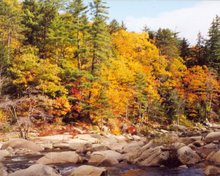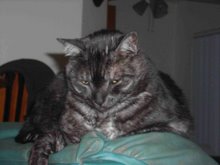The nice fellow made the comment, “I’m not a hero.” I think he also said something like the real heroes were the police officers and firefighters who risked their lives to save citizens.
People who do good deeds are often called “heroes” but the man on the news was right. He’s not a hero --- at least by my definition of the word.
I don’t mean to denigrate his good works. His efforts are immensely admirable. To emulate his act of care and compassion would be a good thing for all of us. But it doesn’t rise to level of hero.
To be a hero requires taking a significant risk, with potentially catastrophic consequences, in order serve a noble sentiment. While I would allow the odds to come out in favor of a potential hero, I’d arbitrarily set them at there being a one in four chance (at best) of being much worse off from doing something heroic. Fictional “super heroes” would never be real heroes in my mind. There’s not much risk involved when bullets bounce off your chest and “you’re more powerful than a locomotive.”
Heroes are also unexpected. In other words, you can’t be a hero if it’s in your job description. That’s why I would disagree that firefighters are themselves heroes. They are, instead, members of a heroic profession — as are soldiers, police officers, missionaries in dangerous countries, or even teachers in many inner city schools. (That’s not an all inclusive list.) They also deserve our thanks and admiration.
Professional athletes are sometimes called heroes — ridiculous. Not only are they just doing their jobs (often because they lack the discipline, intelligence or skills to hold any other kind of work) they are also exceedingly well paid to be idolized by the masses. I suspect true heroes would do what they do even if no one but themselves knew about it.
A few years back, during the Bosnia War, an American pilot was shot down but managed to evade capture until he made his way back to safety. (I’m not looking up his name either.) Some people called him a hero. I’d say he was resourceful, and like the firefighters, in a heroic profession, but serving one’s survival instinct isn’t heroism.
When I think of heroes, I often think of a specific person. His name was Arland D. Williams Jr. January 13, will be the 26th anniversary of his death, the day that Air Florida Flight 90 crashed into the ice-crusted Potomac. The Washington Post wrote this:
“He was about 50 years old, one of half a dozen survivors clinging to twisted wreckage bobbing in the icy Potomac when the first helicopter arrived. To the copter's two-man Park Police crew he seemed the most alert. Life vests were dropped, then a flotation ball. The man passed them to the others. On two occasions, the crew recalled last night, he handed away a life line from the hovering machine that could have dragged him to safety. The helicopter crew - who rescued five people, the only persons who survived from the jetliner - lifted a woman to the riverbank, then dragged three more persons across the ice to safety. Then the life line saved a woman who was trying to swim away from the sinking wreckage, and the helicopter pilot, Donald W. Usher, returned to the scene, but the man was gone.”
That was a hero.


